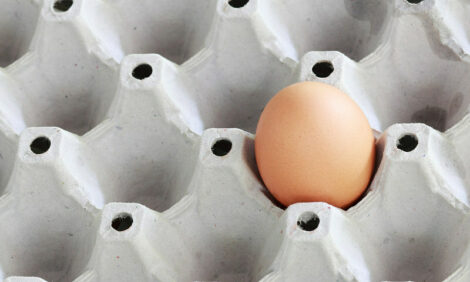



Workshop Boosts Prospect of Halal Poultry Exports
PHILIPPINES - A workshop has been help recently to accelerate the development of halal standards to boost the country's exports.According to an official statement, in the promotion and development of the Philippine Halal Industry, the Department of Agriculture Regional Field Unit (DA-RFU) 9 and 10 through the Agribusiness and Marketing Assistance Division (AMAD) and Livestock Division of the agency, an International Halal Poultry Standards Training Workshop was held in Cagayan de Oro City.
This is to accelerate the development of halal standards for food commodities for the country in order to tap the multi-billion dollar global market for halal products.
Dubbed as International Halal Poultry Standards Training Workshop, it was attended by prominent speakers from Malaysia with vast experience as to Halal standards as well as accreditation in their own country in terms of poultry processing plants.
Halal poultry is set to capture at least two percent of the demand for 770,000 metric tons per year of halal food products in four countries namely Brunei, Indonesia, Malaysia and Philippines under the Brunei-Indonesia-Malaysia-Philippines East Asean Growth Area's (BIMP-EAGA) proponent project.
BIMP-EAGA is an association fostering economic growth and trade within the mentioned countries.
The National Commission on Muslim Filipinos (NCMF) pursuant to Republic Act 9997 is tasked to promote and develop the Philippine Halal Industry, however, we do not have a harmonized standards and certification procedures that are observed by various certifiers in our country and initial steps are being undertaken to address the issue.
It was brought up during the event that there are a lot of food establishments that hanged Halal accreditation signs but these establishments are not Halal accredited by NCMF even some local processing plants.
Thus, an effort to harmonize and create a Global Halal Standards is set off through this workshop.
'Halal' in its objective sense means permissible while the opposite of which is 'haram' which means harmful.
For Muslim people 'halal" is a way of life. It is a standard that they follow devotedly as it is a holy teaching based on the Holy Quran.
Followers to this philosophy maintained that for food to be considered halal, it must not be made of forbidden substance like pork and blood and both its by-products or contain alcohol or intoxicants.
And most importantly animal should only be slaughtered according to Islamic guidelines.
After the workshop, recommendations were suggested to develop the halal industry in the Philippines by harmonising halal protocols and procedures of various government agencies, development of halal certification and accreditation competencies and the capability-building of the certifying bodies and the government halal food inspectors, auditors and the like.
And if these recommendations are pursued seriously by our abattoirs, the country has a big chance to meet international halal standards.
The efforts to advocate and put into practice halal standards in a particular country would in a way help a nation build a stronger market for halal products.
Halal brand products proved to be expensive when exported outside the country of origin and consumers tend to pay for brands that they know are of quality and have been processed and made based on known standards.
Eventually, halal standardisation and certification will lead to higher gross national income, create new jobs and our own products as standardized will gain wider market accessibility prompting its promotion to other countries.
It is then expected that because of this initiative, we will eventually become globally competitive. Hence, it will bring great impact on the country's economy.









